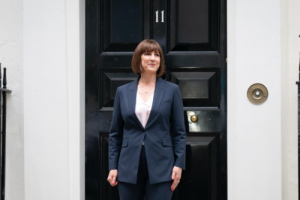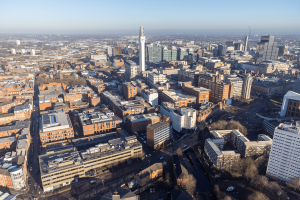Food feeds into lower inflation level as headline rate drops to 3.4%

Falling food costs fed a bigger than expected drop in the inflation rate, new figures showed today (March 20).
The annual headline rate fell from four per cent to 3.4% in February, lower than the anticipated 3.5% level, and on a par with levels two-and-a-half years ago.
Data from the Office for National Statistics (ONS) revealed food prices were almost flat this year compared with a large rise last year, while restaurant and café price rises also slowed.
ONS chief economist, Grant Fitzner, said: “These falls were only partially offset by price rises at the (fuel) pump and a further increase in rental costs.”
Today’s progress will hearten Chancellor Jeremy Hunt and Prime Minister Rishi Sunak, with inflation forecast to fall back below the Bank of England’s target rate of two per cent in the next few months.
But the Bank of England is expected to resist calls for a further cut in interest rates at its next Monetary Policy Committee meeting.
The Chancellor responded by saying his “plan was working”.
But Labour’s shadow chancellor, Rachel Reeves, said prices were “still high” – and pointed out “the tax burden is the highest it has been in 70 years”.
Tina McKenzie, Policy Chair, Federation of Small Businesses (FSB) said: “Any easing in inflation brings relief to small firms, and today’s reported drop is a step towards reducing interest rates by the summer.
“However, we mustn’t discount the cumulative damage that has been done to small businesses’ margins and cash reserves by inflation having been so high for so long.”
Danni Hewson, head of financial analysis at investment platform, AJ Bell, said: “There is no doubt inflation is moving in the right direction. Just think back to this time last year when CPI was in double digits and food inflation hit a tortuous 18% as peppers, cucumbers and salad leaves vanished from supermarket shelves.
“A much more manageable 3.4%, cooler than had been expected, has already impacted market expectation of how many rate cuts the Bank of England might be able to push through by the end of the year. Money markets are once again pricing in four or even the off chance of five cuts by the end of the year, where yesterday just three seemed possible.”
She added: “Today’s figures are unlikely to provide much more than a talking point for MPC members at their meeting tomorrow. The anticipated impact of a falling energy price cap will have already stoked expectation that the Bank’s two per cent target is within reaching distance. Until that point a twist of the hand isn’t expected.

Danni Hewson
“For households, bruised and bloody after two years of rising prices, today’s number won’t provide a great deal of comfort. For mortgage holders who have already dropped off ultra-low fixed rates, adjustments will have been made and some would have been deeply uncomfortable.
“The latest Which? survey shows many mortgage holders have been robbing Peter to pay Paul, missing payments on credit cards or energy bills, just to make sure the roof over their head is paid up to date.
“Because whilst the price cap has come down, absent that government cash dropping into bank accounts in £66 or £67 instalments and most households have actually been paying more for their energy over the last few months.
“Add to that the fact that everyone is feeling inflation-weary. Savings have been raided, unwanted property has been sold off and people have been trading down wherever they’ve been able to.
“With rental prices still at a premium and more than a million households heading towards that mortgage switching cliff edge this year, the cost-of-living crisis is still very real.”
She said: “Things are often darkest before the dawn and with producer input prices still falling there’s no doubt we are on the cusp of a new day. Some prices are coming down and that heart stopping moment at the supermarket till has become easier as competition for market share continues to drive down the cost of many essentials.”
“But we have all become brutally realistic about our changing fortunes. For every cut to National Insurance or drop in the energy price cap, another bill seems to appear to gobble up any extra pennies we might have been hoping would end up in our pockets.
“The Which? survey sums the situation up perfectly. A quarter of households think their financial situation will get better over the next year, but a third expect things will only get worse.”









